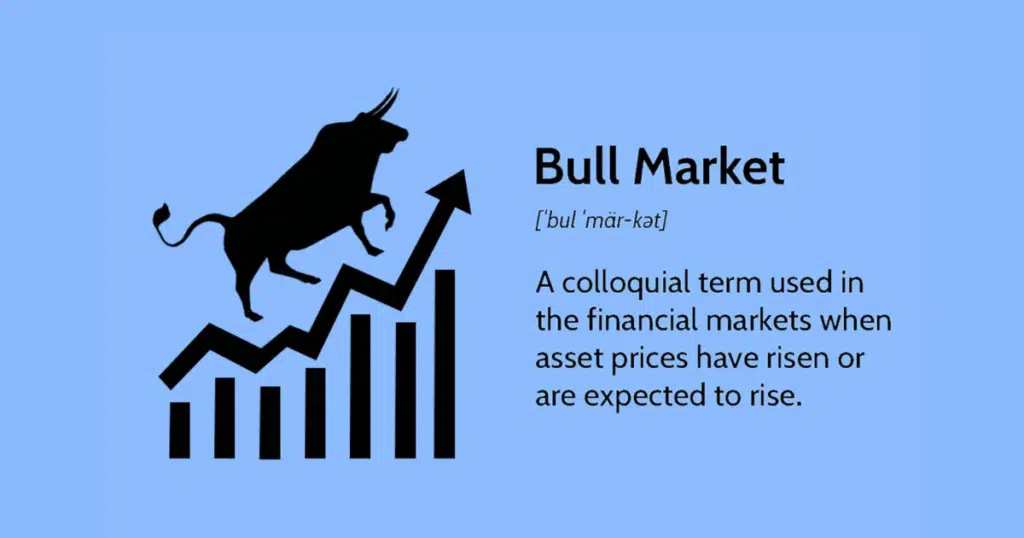Understanding Bull Markets
A bull market refers to a period characterized by a sustained increase in the value of equities, such as cryptocurrencies, stocks, commodities, bonds, or real estate.
During a bull market, asset prices generally experience a gradual upward trend, leading to optimistic market sentiment.
Investors actively participate in the market, expecting prices to continue rising and aiming to profit from selling their holdings at a later time.

Key Characteristics
Several key characteristics typically mark bull markets:
- Expansion of the economy: Bull markets often coincide with economic growth and prosperity periods.
- Investor confidence: Positive market sentiment and optimism prevail among investors, driving their willingness to buy assets.
- Increased employment and corporate profits: Bull markets are associated with lower unemployment rates and higher corporate earnings.
- High demand and limited supply: A higher demand for assets can lead to scarcity and limited availability.
While no specific benchmark or duration defines a bull market, sustained price increases of 20% or more are often used as indicators.
Bull markets are challenging to predict but become apparent as prices consistently trend upward.
Understanding bull markets and their characteristics is essential for investors and individuals aiming to navigate the financial markets effectively.